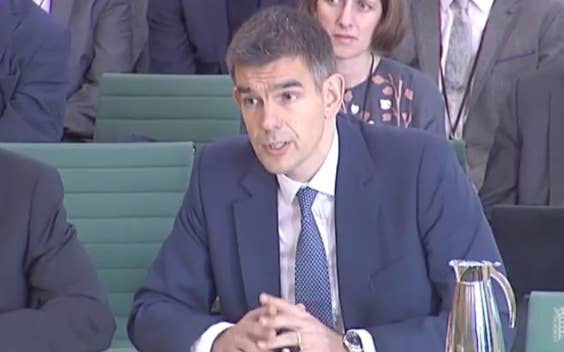The £130 million Google agreed to pay the government in backdated corporation tax seems "disproportionately small" compared with the size of its UK business, according to a committee of MPs.

The House of Commons public accounts committee (PAC), which is holding an inquiry into the tax affairs of multinational businesses operating in the UK, said in a new report: "The sum paid by Google seems disproportionately small when compared with the size of Google's business in the UK, reinforcing our concerns that the rules governing where corporation tax is paid by multinational companies do not produce a fair outcome."
In January Google announced it would pay £130 million on profits going back to 2005. Some £18 million of this was interest payable on the outstanding balance, but HMRC did not apply a late payment charge.
At the same time it said it would pay £46.2 million in tax on profits of £106 million it made in the 18 months to June 2015.
The deal was trumpeted by chancellor George Osborne as a "victory" in his drive to make the tax system fairer.
But the committee pointed out that £130 million is tiny in the context of Google's cashflow. The UK is Google's largest market outside the US and it made revenues of $7 billion (£5 billion) in Britain in 2015, about 10% of its total.
Overall, the committee concluded that the lack of transparency about HMRC's tax settlements made it "impossible" to judge whether it was a fair deal and whether Google is paying enough tax. PAC is calling for changes to the rules so the public can see the details of multinational companies' tax affairs.
HMRC told the MPs' inquiry that it was "confident" it had got Google to pay the right amount of tax based on its evidence, but added that it could reopen its own investigation into the company's tax affairs should new evidence emerge.
Google's Europe president, Matt Brittin, was ridiculed for not knowing how much he earned, at a PAC evidence hearing on 11 February.

On the day of that session, Google told The Telegraph it had "long been in favour of simpler, clear rules" and said in a letter to the Financial Times that "Google complies with the law".
However the PAC report was critical of Google for simultaneously calling for more transparency while having created a complex accounting system "directed at minimising its tax liabilities".
The report notes that the company's press statements made no mention of "the complex set of arrangements it has chosen to set up which involves sending its money to a tax haven in Bermuda, via a series of royalty payments between Ireland and the Netherlands".
Google, the report concluded, is an example of how international tax rules are not working.
Google "disingenuous" says @CommonsPAC. It cuts its tax bill by moving money from its right to left trouser pocket.
A spokesperson for HMRC said: "HMRC does not settle for a penny less than is due under the law from multinationals. Last year we brought in an additional £7 billion by rigorously enforcing the tax rules that apply to large businesses.
"We completely understand that there is a real appetite for as much information and insight as possible into how we pursue the tax payable by multinationals. We are committed to being as open and transparent as we can within the constraints of our statutory duty of taxpayer confidentiality."
BuzzFeed News has approached Google for comment.
